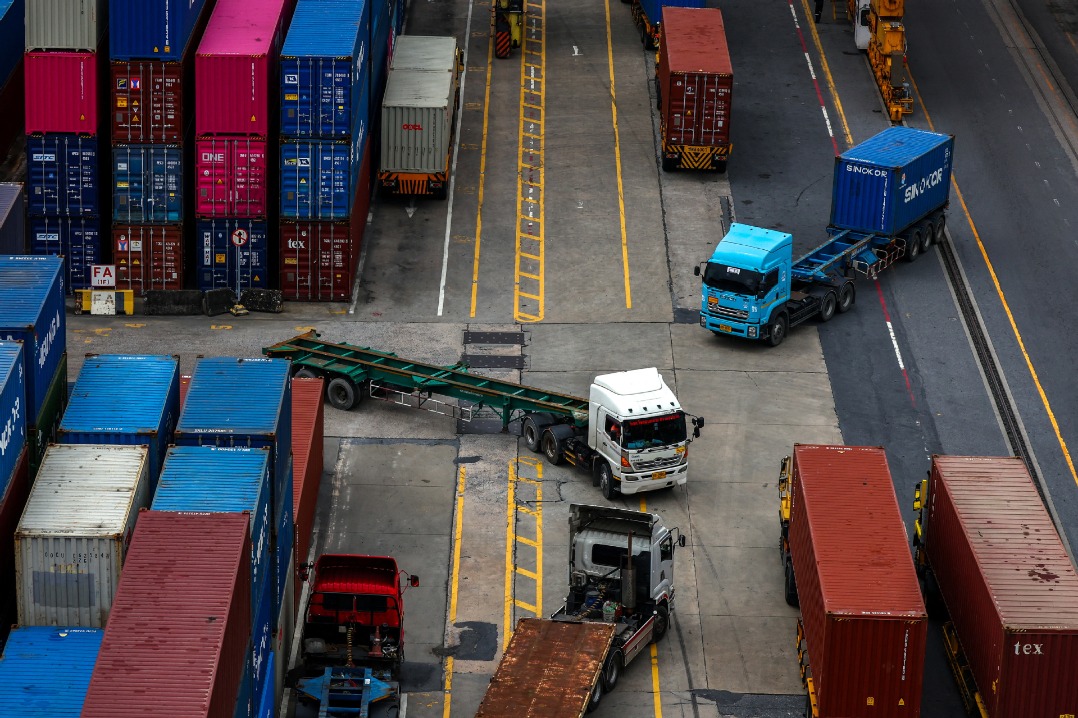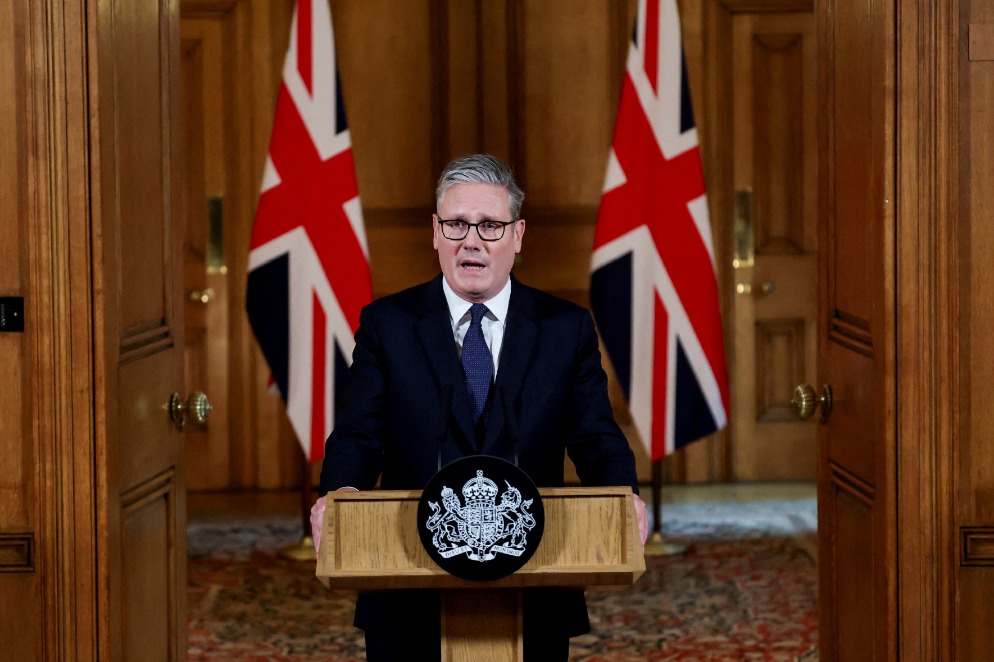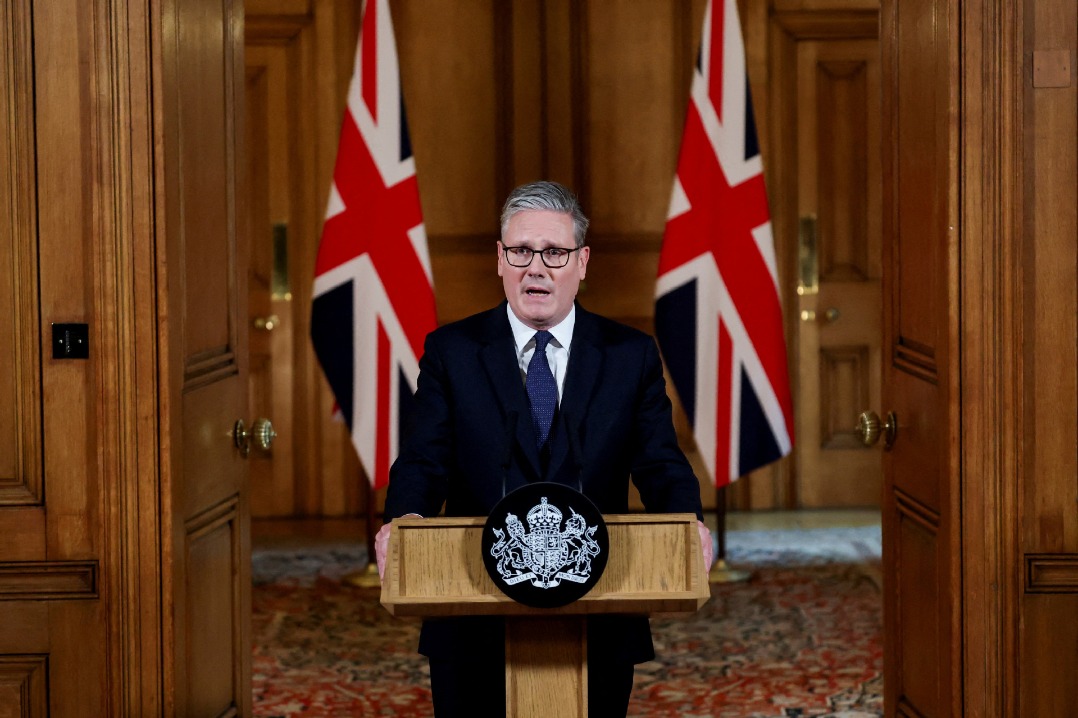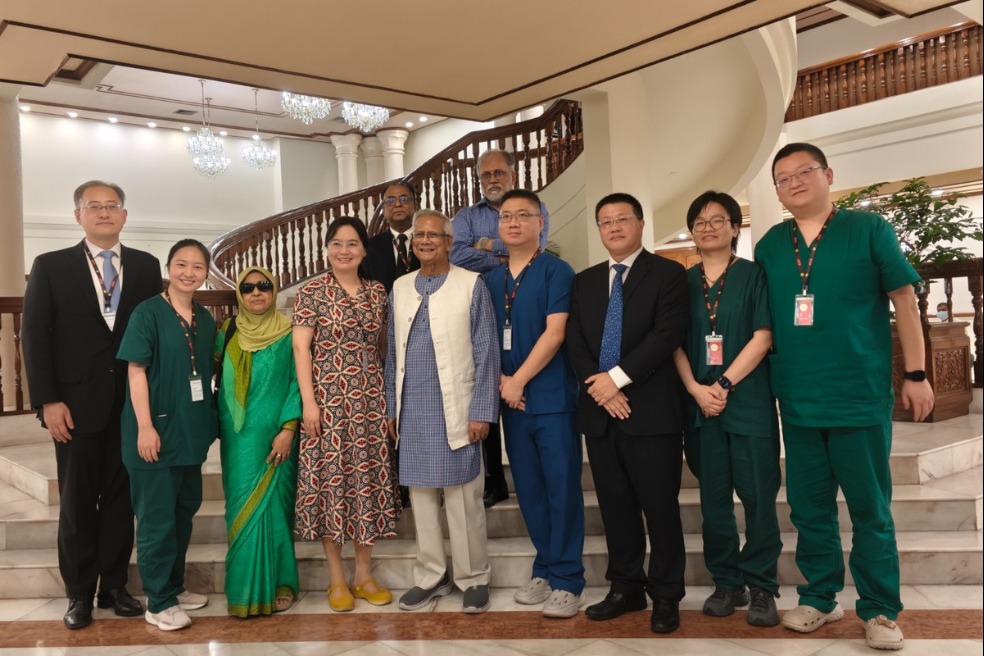Tariff talks to resume after border truce
Role of economic diplomacy stressed in resolving Thai-Cambodian conflict

A deal between Thailand and Cambodia for a ceasefire along their border has paved the way for resumption of tariff negotiations by the two Southeast Asian countries with the United States, analysts noted, underscoring the importance of economic diplomacy for resolving conflicts in the region.
But they pointed out that the de-escalation of the conflict between the two neighboring countries has been resolved 'in-house', within the confines of the Association of Southeast Asian Nations, with Malaysian Prime Minister and ASEAN's rotating chair Anwar Ibrahim serving as mediator.
Anwar, who was on a state visit to Indonesia on Tuesday, acknowledged both China and the US for facilitating the peace talks.
In an address at the ASEAN Secretariat in Jakarta, Anwar said the presence of all parties in the peace talks has reaffirmed that "peace is best achieved through dialogue, mutual respect and a shared commitment to stability".
China's Foreign Ministry Spokesman Guo Jiakun told a news conference in Beijing on Tuesday that China supports Malaysia "to continue playing its role as the rotating chair of ASEAN, promoting political settlement of the issue in 'the ASEAN Way', and supports all efforts conducive to increasing mutual trust and de-escalating the situation".
"As a friend and close neighbor of Cambodia and Thailand, China will maintain close communication with all parties, including the two countries, and on the basis of respecting the will of Cambodia and Thailand, continue to work in our own way and play a constructive role in consolidating the ceasefire agreement," he said.
Soon after the ceasefire deal was announced on Monday, US President Donald Trump, in a social media post, claimed credit for the development and said he had instructed the US Trade Representative to promptly resume trade negotiations with both Thailand and Cambodia.
Cambodia and Thailand are both currently facing 36 percent US tariffs that are set to begin on Friday. Thai Finance Minister Pichai Chunhavajira said in a briefing that Thailand expects the tariff negotiations to be concluded before the Aug 1 deadline, and that the final US tariffs would be lower than 36 percent.
'Not causally linked'
" (Trump's announcement) may seem globally significant. But from ASEAN's view, the timing is coincidental, not causally linked to the Cambodia-Thailand military flashpoint," said Awang Azman Awang Pawi, a professor at the Academy of Malay Studies, University of Malaya, Kuala Lumpur.
He said "overfocusing" on Trump's announcements or Washington's moves will only allow "external actors to define ASEAN problems on their behalf".
"ASEAN was founded precisely to prevent intra-regional conflict, ensuring Southeast Asia remains autonomous, peaceful, and free from external manipulation," Awang Azman told China Daily.
But the principle of economic diplomacy can still be a powerful de-escalation tool for ASEAN, he said.
Deeply integrated
The professor noted that Cambodia and Thailand are deeply integrated within ASEAN economic frameworks, including the ASEAN Free Trade Area and the Regional Comprehensive Economic Partnership.
"Economic interdependence can be leveraged. Trade disruptions, tourism losses and foreign investor anxiety could pressure both parties toward restraint," Awang Azman said.
Julia Roknifard, a senior lecturer at the School of Law and Governance at Taylor's University in Malaysia, said the tariff talks may have "surely played a role, but a limited one", noting that Thailand and Cambodia also rely on China for their respective economic growth.
"The fact that it was both China and the US that were in the room with the leaders gave a strong implicit signal that this (border conflict) would cost them both (Thailand and Cambodia) dearly in terms of economic stability. If it was the US alone in the room and if it had threatened tariffs or other economic measures, there would likely have been no agreement," Roknifard told China Daily.
Roknifard said a conflict between Cambodia and Thailand would not be easy to contain as it is situated "in the very heartland of ASEAN".
"All ASEAN states understood that this would severely destabilize the region particularly if external powers got involved," she said.
The peace talks were conducted after five days of armed clashes between Cambodian and Thai soldiers over disputed border areas. More than 100 people have been killed or injured and thousands have been displaced.
Prior to the declaration of the ceasefire, ASEAN foreign ministers released a joint statement saying they were "deeply concerned" over the situation in the border areas between Cambodia and Thailand, and emphasized the need for both sides to exercise maximum restraint and undertake an immediate ceasefire.
On Tuesday, military commanders from both sides held talks and agreed to maintain the ceasefire, stop any troop movement, and facilitate the return of the wounded and dead, Thai army spokesman Winthai Suvaree said.
prime@chinadailyapac.com

































